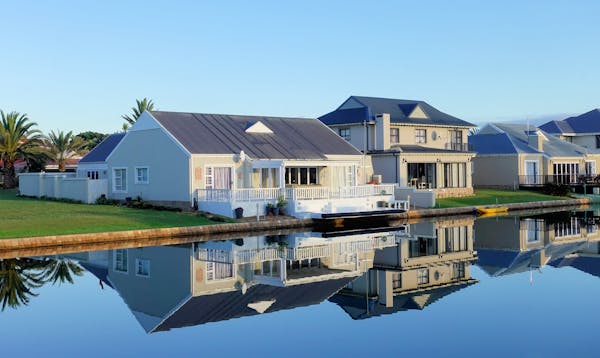Why Washington is a Prime Investment Market
Technology sector growth and international trade continue to drive demand for land across Washington.
Corporate expansion and infrastructure investment support long-term appreciation and development viability.
Limited supply in key corridors, paired with strong demand, keeps the market competitive and resilient.
Technology and innovation hub
Seattle tech corridor and startup ecosystem
International trade gateway
Major Pacific Rim shipping and logistics
Sustainable forestry industry
Timber and forest product opportunities
Outdoor recreation economy
World-class skiing, hiking, and water sports
Aerospace and manufacturing
Boeing and advanced manufacturing presence
Strategic Pacific Northwest location
Gateway to Asia-Pacific markets
Washington Regional Submarkets
Understanding the diverse investment opportunities across Washington's distinct regions
Puget Sound Region (Seattle Metro)
The most valuable land market in Washington, driven by technology sector growth, international trade, and limited developable land supply.
Eastern Washington
Agricultural and energy corridor with lower land costs and diverse opportunities from farming to renewable energy development.
Southwest Washington (Vancouver Area)
Portland metro spillover market with no state income tax advantage and proximity to Oregon employment centers.
Olympic Peninsula and Coastal Areas
Recreational and tourism-focused properties with forestry, fishing, and outdoor recreation economic drivers.
Utilities and Infrastructure
Essential infrastructure information for land development in Washington
Electricity
Puget Sound Energy/Avista
$3,500-$15,000
Water
Municipal/Private Wells
$5,000-$18,000
Internet
Comcast/CenturyLink
$500-$3,000
Phone
Multiple carriers
Standard rates
Zoning and Development Guide
Understanding zoning classifications in Washington
Single Family Residential
Low-density residential, large lots
Medium Density Residential
Townhomes and small multifamily
Commercial
Retail, offices, and commercial services
Agricultural
Farming, forestry, agricultural operations
⚠️ Important Zoning Disclaimer
Zoning information is subject to change and should be verified with local Washington planning departments before making investment decisions. Development requirements, setbacks, and permitted uses may vary by specific location and current regulations. Washington's Growth Management Act and environmental regulations may apply to larger developments. Always consult with local planning officials and qualified professionals before proceeding with land development projects.
Want to Buy Land in Washington?
Fill up the form to get a full list of Land for sale in Washington.
Land for Sale in Washington
Looking to buy land for sale in Washington? There are plenty of options out there, ranging from tech corridor development sites to agricultural acreage and everything in between. Before you jump on the first piece of land for sale that you see, however, it pays to do your homework first.
The type of property you're looking for will largely depend on your investment goals and whether you plan to develop residential, commercial, or agricultural projects. Washington's diverse geography offers unique opportunities from urban infill to rural agricultural land.
How to Find the Best Land for Sale in Washington
Washington's land market is driven by technology sector growth, international trade, and environmental consciousness. The state offers everything from premium Seattle metro development sites to affordable agricultural land in eastern regions.
Consider technology corridor opportunities
The Seattle metro area and surrounding tech corridor offer premium development opportunities. Consider proximity to major employers like Microsoft, Amazon, and Boeing when evaluating land for residential or commercial development.
Evaluate environmental regulations
Washington has strict environmental protections including wetlands preservation, salmon habitat requirements, and forest practice regulations. These factors significantly impact development potential and should be thoroughly researched.
Tips to Find Value Land for Sale in Washington
While Washington's prime markets command premium prices, strategic buyers can find excellent value by focusing on emerging areas and properties with development potential.
1) Focus on emerging suburban markets
Look for areas experiencing population growth but where land prices haven't fully reflected the potential. Suburban markets around Seattle, Spokane, and Vancouver offer good value propositions.
2) Consider agricultural conversion opportunities
Eastern Washington agricultural land may have development potential as population centers expand. These properties often offer lower entry costs with significant upside potential.
Frequently Asked Questions
Common questions about Washington land investment
What are property taxes like for land in Washington?
Washington has no state income tax but relies on property taxes for revenue. Property tax rates typically range from 0.8% to 1.4% of assessed value annually. Agricultural and forestry land may qualify for special use classifications that reduce tax obligations. King County (Seattle) has higher rates than rural counties.
How long does the development approval process take in Washington?
Development timelines vary significantly by location and project type. Seattle metro projects may take 12-24 months due to environmental reviews and community input processes. Rural areas typically have faster approvals (3-8 months). The State Environmental Policy Act (SEPA) may add time for larger projects.
What utilities are available for land development in Washington?
Urban areas have comprehensive utility infrastructure including municipal water, sewer, electricity, and natural gas. Rural properties may require private wells and septic systems. Puget Sound Energy serves most of western Washington, while Avista serves eastern regions. High-speed internet is widely available.
Are there environmental restrictions for land in Washington?
Washington has strict environmental regulations including wetlands protection, salmon habitat preservation, and forest practice rules. The Growth Management Act requires urban growth boundaries and environmental impact assessments. Coastal properties have additional shoreline management requirements.
What makes Washington land a good investment?
Washington offers strong technology sector growth, international trade advantages, no state income tax, diverse economy, and limited land supply in key markets. The state's Pacific Rim location and major ports create unique logistics and trade opportunities that support land values.
Can I generate income from undeveloped land in Washington?
Yes, options include agricultural leases ($100-$400/acre for crops), forestry operations (timber harvesting), solar energy leases ($400-$900/acre), hunting leases ($10-$50/acre), and cell tower leases ($1,500-$4,000/month). Wine grape production is also profitable in suitable areas.
What environmental factors should I consider for Washington land?
Consider rainfall patterns (varies dramatically across the state), soil conditions, seismic activity, wildfire risk in eastern regions, and salmon habitat areas. Western Washington is wet with mild temperatures, while eastern Washington is dry with temperature extremes. Environmental assessments are crucial.
How do I finance land purchases in Washington?
Options include conventional land loans, credit unions (strong presence in Washington), owner financing, and investment partnerships. Many lenders are familiar with Washington's unique environmental requirements. Consider working with lenders experienced in forestry, agriculture, or technology sector financing.


